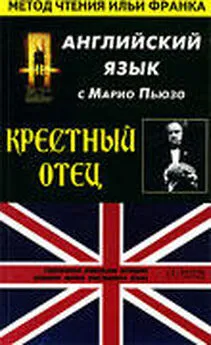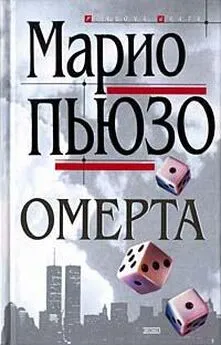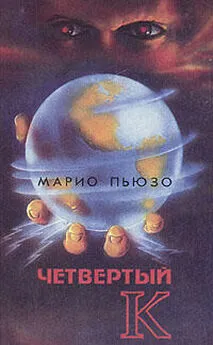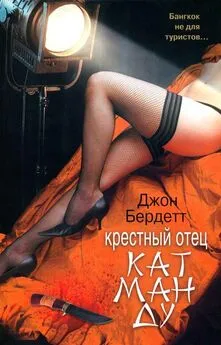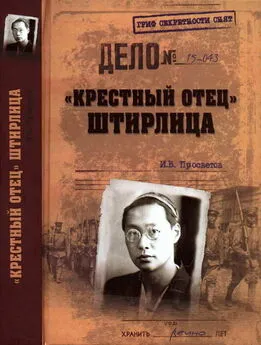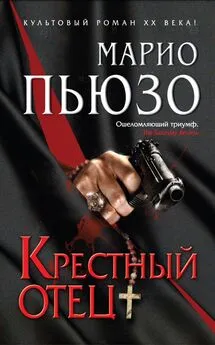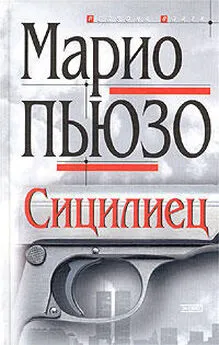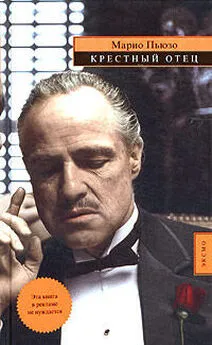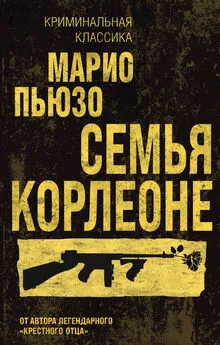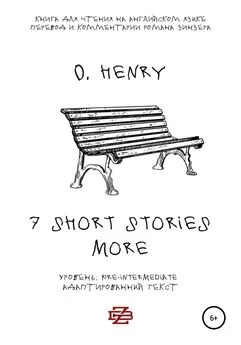Mario Puzo - Крестный отец, часть 1. Английский язык с Марио Пьюзо.
- Название:Крестный отец, часть 1. Английский язык с Марио Пьюзо.
- Автор:
- Жанр:
- Издательство:неизвестно
- Год:неизвестен
- ISBN:нет данных
- Рейтинг:
- Избранное:Добавить в избранное
-
Отзывы:
-
Ваша оценка:
Mario Puzo - Крестный отец, часть 1. Английский язык с Марио Пьюзо. краткое содержание
Английский язык с с Крестным Отцом
Текст адаптирован (без упрощения текста оригинала) по методу Ильи Франка: текст разбит на небольшие отрывки, каждый и который повторяется дважды: сначала идет английский текст с «подсказками» — с вкрапленным в него дословным русским переводом и лексико-грамматическим комментарием (то есть адаптированный), а затем — тот же текст, но уже неадаптированный, без подсказок.
Начинающие осваивать английский язык могут при этом читать сначала отрывок текста с подсказками, а затем тот же отрывок — без подсказок. Вы как бы учитесь плавать: сначала плывете с доской, потом без доски. Совершенствующие свой английский могут поступать наоборот: читать текст без подсказок, по мере необходимости подглядывая в подсказки.
Запоминание слов и выражений происходит при этом за счет их повторяемости, без зубрежки.
Кроме того, читатель привыкает к логике английского языка, начинает его «чувствовать».
Этот метод избавляет вас от стресса первого этапа освоения языка — от механического поиска каждого слова в словаре и от бесплодного гадания, что же все-таки значит фраза, все слова из которой вы уже нашли.
Пособие способствует эффективному освоению языка, может служить дополнением к учебникам по грамматике или к основным занятиям. Предназначено для студентов, для изучающих английский язык самостоятельно, а также для всех интересующихся английской культурой.
Мультиязыковой проект Ильи Франка: www.franklang.ru
От редактора fb2. Есть два способа оформления транскрипции: UTF-LATIN и ASCII-IPA. Для корректного отображения UTF-LATIN необходимы полноценные юникодные шрифты, например, DejaVu или Arial Unicode MS. Если по каким либо причинам вас это не устраивает, то воспользуйтесь ASCII-IPA версией той же самой книги (отличается только кодированием транскрипции). Но это сопряженно с небольшими трудностями восприятия на начальном этапе. Более подробно об ASCII-IPA читайте в Интернете:
http://alt-usage-english.org/ipa/ascii_ipa_combined.shtml
http://en.wikipedia.org/wiki/Kirshenbaum
1.0 - создание файла
Крестный отец, часть 1. Английский язык с Марио Пьюзо. - читать онлайн бесплатно ознакомительный отрывок
Интервал:
Закладка:
Finally an exquisitely dressed (изысканно одетая) but stout (полная) middle-aged woman came to lead him through a string of offices (через ряд офисов; string – веревка; последовательность) to the office-apartment of the movie producer. Hagen was impressed by the beauty of the offices and the people working in them. He smiled. They were all shrewdies (ловкачи, проныры: shrewdie; shrewd [∫ru:d] – пронизывающий, сильный /напр. о ветре/; сообразительный, быстро схватывающий), trying to get their foot in the movie door by taking office jobs, and most of them would work in these offices for the rest of their lives (всю оставшуюся жизнь) or until they accepted defeat (пока не признают: «примут» поражение; defeat [dı’fi:t]) and returned to their home towns.
It was still dark when the plane landed in Los Angeles. Hagen checked into his hotel, showered and shaved, and watched dawn come over the city. He ordered breakfast and newspapers to be sent up to his room and relaxed until it was time for his ten A.M. appointment with Jack Woltz. The appointment had been surprisingly easy to make.
The day before, Hagen had called the most powerful man in the movie labor unions, a man named Billy Goff. Acting on instructions from Don Corleone, Hagen had told Goff to arrange an appointment on the next day for Hagen to call on Jack Woltz, that he should hint to Woltz that if Hagen was not made happy by the results of the interview, there could be a labor strike at the movie studio. An hour later Hagen received a call from Goff. The appointment would be at ten A.M. Woltz had gotten the message about the possible labor strike but hadn't seemed too impressed, Goff said. He added, "If it really comes down to that, I gotta talk to the Don myself."
"If it comes to that he'll talk to you," Hagen said. By saying this he avoided making any promises. He was not surprised that Goff was so agreeable to the Don's wishes. The family empire, technically, did not extend beyond the New York area but Don Corleone had first become strong by helping labor leaders. Many of them still owed him debts of friendship.
But the ten A.M. appointment was a bad sign. It meant that he would be first on the appointment list, that he would not be invited to lunch. It meant that Woltz held him in small worth. Goff had not been threatening enough, probably because Woltz had him on his graft payroll. And sometimes the Don's success in keeping himself out of the limelight worked to the disadvantage of the family business, in that his name did not mean anything to outside circles.
His analysis proved correct. Woltz kept him waiting for a half hour past the appointed time. Hagen didn't mind. The reception room was very plush, very comfortable, and on a plum-colored couch opposite him sat the most beautiful child Hagen had ever seen. She was no more than eleven or twelve, dressed in a very expensive but simple way as a grown woman. She had incredibly golden hair, huge deep sea-blue eyes and a fresh raspberry-red mouth. She was guarded by a woman obviously her mother, who tried to stare Hagen down with a cold arrogance that made him want to punch her in the face. The angel child and the dragon mother, Hagen thought, returning the mother's cold stare.
Finally an exquisitely dressed but stout middle-aged woman came to lead him through a string of offices to the office-apartment of the movie producer. Hagen was impressed by the beauty of the offices and the people working in them. He smiled. They were all shrewdies, trying to get their foot in the movie door by taking office jobs, and most of them would work in these offices for the rest of their lives or until they accepted defeat and returned to their home towns.
Jack Woltz was a tall, powerfully built man (крепко: «мощно» скроенный, сложенный) with a heavy paunch (с «тяжелым» брюхом [po:nt∫]) almost concealed (почти скрытым) by his perfectly tailored suit (его превосходно сшитым костюмом [sju:t]). Hagen knew his history. At ten years of age Woltz had hustled empty beer kegs (катал бочки из-под пива; keg – бочонок /до 10 галлонов/; hustle [hLsl] – толкать, пихать, гнать вперед) and pushcarts (тележки: to push – толкать + cart – телега, повозка) on the East Side. At twenty he helped his father sweat garment workers (выжимать соки: «пот» из рабочих швейной промышленности; garment – одежда, предмет одежды). At thirty he had left New York and moved West, invested in the nickelodeon (вложил деньги в один из первых кинотеатров; nickelodeon – так назывались первые кинотеатры, в которых фильмы были лишь частью общего шоу и входная цена была 1 nickel = 5 cents) and pioneered motion pictures (и запустил кинопромышленность, стал одним из ее основателей). At forty-eight he had been the most powerful movie magnate in Hollywood, still rough-spoken (грубый в обращении), rapaciously amorous (алчный в любви; rapacious [r∂’peı∫∂s] – жадный, алчный; amorous [‘æm∂r∂s] – влюбчивый), a raging wolf (свирепствующий волк) ravaging helpless flocks of young starlets (пожирающий беззащитные стада молоденьких звездочек; to ravage ['rævıdG] – разорять, опустошать; грабить). At fifty he transformed himself (переменился). He took speech lessons (брал уроки дикции), learned how to dress from an English valet (у лакея, камердинера ['vælıt]) and how to behave socially (как вести себя в обществе: «общественно») from an English butler (у дворецкого, старшего лакея). When his first wife died he married a world-famous (на всемирно знаменитой) and beautiful actress who didn't like acting (которой не нравилось играть, сниматься). Now at the age of sixty he collected old master paintings (шедевры живописи), was a member of the President's Advisory Committee, and had set up a multimillion-dollar foundation (фонд) in his name to promote art in motion pictures (чтобы содействовать искусству в кино; to promote – выдвигать, продвигать; способствовать). His daughter had married an English lord, his son an Italian princess.
His latest passion (его последнее увлечение: «страсть»), as reported dutifully by every movie columnist in America (как старательно было сообщено каждым кинообозревателем; column [‘kol∂m] – колонна; колонка /обзор постоянного корреспондента/), was his own racing stables (собственные конюшни для беговых лошадей) on which he had spent ten million dollars in the past year. He had made headlines («сделал заголовки» = это было во всех газетных заголовках) by purchasing (тем, что приобрел, приобретя; to purchase [‘p∂:t∫∂s]) the famed English racing horse Khartoum for the incredible price of six hundred thousand dollars and then announcing (а затем заявил, заявив) that the undefeated racer (не знающий поражения скакун; defeat – поражение) would be retired (больше не будет принимать участия в скачках; to retire – уходить, удаляться; уйти на покой, на пенсию) and put to stud (и станет использоваться в качестве жеребца) exclusively for the Woltz stables.
He received Hagen courteously, his beautifully, evenly tanned (ровно загорелое), meticulously barbered face (тщательно выбритое лицо; meticulous [mı’tıkjul∂s] – мелочный, дотошный, тщательный) contorted with a grimace (исказилось гримасой) meant to be a smile (которая должна была означать улыбку). Despite all the money spent, despite the ministrations (несмотря на «оказания» помощи, услуг = несмотря на все старания) of the most knowledgeable technicians (наиболее опытных специалистов), his age showed (его возраст был виден, обнаруживал себя); the flesh of his face looked as if it had been seamed together (словно было сшито; seam – шов; to seam – соединять швом, сшивать). But there was an enormous vitality in his movements (огромная жизненная сила, энергия в его движениях) and he had what Don Corleone had, the air of a man who commanded absolutely the world in which he lived.
Jack Woltz was a tall, powerfully built man with a heavy paunch almost concealed by his perfectly tailored suit. Hagen knew his history. At ten years of age Woltz had hustled empty beer kegs and pushcarts on the East Side. At twenty he helped his father sweat garment workers. At thirty he had left New York and moved West, invested in the nickelodeon and pioneered motion pictures. At forty-eight he had been the most powerful movie magnate in Hollywood, still rough-spoken, rapaciously amorous, a raging wolf ravaging helpless flocks of young starlets. At fifty he transformed himself. He took speech lessons, learned how to dress from an English valet and how to behave socially from an English butler. When his first wife died he married a world-famous and beautiful actress who didn't like acting. Now at the age of sixty he collected old master paintings, was a member of the President's Advisory Committee, and had set up a multimillion-dollar foundation in his name to promote art in motion pictures. His daughter had married an English lord, his son an Italian princess.
His latest passion, as reported dutifully by every movie columnist in America, was his own racing stables on which he had spent ten million dollars in the past year. He had made headlines by purchasing the famed English racing horse Khartoum for the incredible price of six hundred thousand dollars and then announcing that the undefeated racer would be retired and put to stud exclusively for the Woltz stables.
He received Hagen courteously, his beautifully, evenly tanned, meticulously barbered face contorted with a grimace meant to be a smile. Despite all the money spent, despite the ministrations of the most knowledgeable technicians, his age showed; the flesh of his face looked as if it had been seamed together. But there was an enormous vitality in his movements and he had what Don Corleone had, the air of a man who commanded absolutely the world in which he lived.
Hagen came directly to the point (прямо перешел к сути дела, начал с самой сути). That he was an emissary (эмиссар, посланец ['emis∂rı]) from a friend of Johnny Fontane. That this friend was a very powerful man who would pledge his gratitude (готов поклясться, заверить в своей благодарности = гарантирует свою благодарность; to pledge – отдавать в залог; давать обет; связывать обещанием, клятвой) and undying friendship (и вечную: «неумирающую» дружбу) to Mr. Woltz if Mr. Woltz would grant a small favor (сделает небольшую любезность, удовлетворит просьбу; to grant – дарить, жаловать; предоставлять, удовлетворять). The small favor would be the casting of Johnny Fontane (предоставление роли; to cast – распределять роли) in the new war movie the studio planned to start next week.
Читать дальшеИнтервал:
Закладка:
